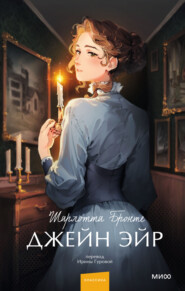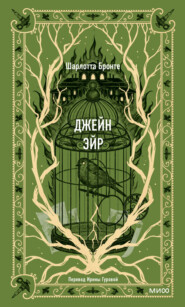По всем вопросам обращайтесь на: info@litportal.ru
(©) 2003-2024.
✖
Villette
Настройки чтения
Размер шрифта
Высота строк
Поля
He looked up from his book; his eyes were not cold or malevolent, his mouth was not cynical; he was ready and willing to hear what I might have to say: his spirit was of vintage too mellow and generous to sour in one thunder-clap.
"Dr. Bretton, forgive my hasty words: do, do forgive them."
He smiled that moment I spoke. "Perhaps I deserved them, Lucy. If you don't respect me, I am sure it is because I am not respectable. I fear, I am an awkward fool: I must manage badly in some way, for where I wish to please, it seems I don't please."
"Of that you cannot be sure; and even if such be the case, is it the fault of your character, or of another's perceptions? But now, let me unsay what I said in anger. In one thing, and in all things, I deeply respect you. If you think scarcely enough of yourself, and too much of others, what is that but an excellence?"
"Can I think too much of Ginevra?"
"I believe you may; you believe you can't. Let us agree to differ. Let me be pardoned; that is what I ask."
"Do you think I cherish ill-will for one warm word?"
"I see you do not and cannot; but just say, 'Lucy, I forgive you!' Say that, to ease me of the heart-ache."
"Put away your heart-ache, as I will put away mine; for you wounded me a little, Lucy. Now, when the pain is gone, I more than forgive: I feel grateful, as to a sincere well-wisher."
"I am your sincere well-wisher: you are right."
Thus our quarrel ended.
Reader, if in the course of this work, you find that my opinion of Dr. John undergoes modification, excuse the seeming inconsistency. I give the feeling as at the time I felt it; I describe the view of character as it appeared when discovered.
He showed the fineness of his nature by being kinder to me after that misunderstanding than before. Nay, the very incident which, by my theory, must in some degree estrange me and him, changed, indeed, somewhat our relations; but not in the sense I painfully anticipated. An invisible, but a cold something, very slight, very transparent, but very chill: a sort of screen of ice had hitherto, all through our two lives, glazed the medium through which we exchanged intercourse. Those few warm words, though only warm with anger, breathed on that frail frost-work of reserve; about this time, it gave note of dissolution. I think from that day, so long as we continued friends, he never in discourse stood on topics of ceremony with me. He seemed to know that if he would but talk about himself, and about that in which he was most interested, my expectation would always be answered, my wish always satisfied. It follows, as a matter of course, that I continued to hear much of "Ginevra."
"Ginevra!" He thought her so fair, so good; he spoke so lovingly of her charms, her sweetness, her innocence, that, in spite of my plain prose knowledge of the reality, a kind of reflected glow began to settle on her idea, even for me. Still, reader, I am free to confess, that he often talked nonsense; but I strove to be unfailingly patient with him. I had had my lesson: I had learned how severe for me was the pain of crossing, or grieving, or disappointing him. In a strange and new sense, I grew most selfish, and quite powerless to deny myself the delight of indulging his mood, and being pliant to his will. He still seemed to me most absurd when he obstinately doubted, and desponded about his power to win in the end Miss Fanshawe's preference. The fancy became rooted in my own mind more stubbornly than ever, that she was only coquetting to goad him, and that, at heart, she coveted everyone of his words and looks. Sometimes he harassed me, in spite of my resolution to bear and hear; in the midst of the indescribable gall-honey pleasure of thus bearing and hearing, he struck so on the flint of what firmness I owned, that it emitted fire once and again. I chanced to assert one day, with a view to stilling his impatience, that in my own mind, I felt positive Miss Fanshawe must intend eventually to accept him.
"Positive! It was easy to say so, but had I any grounds for such assurance?"
"The best grounds."
"Now, Lucy, do tell me what!"
"You know them as well as I; and, knowing them, Dr. John, it really amazes me that you should not repose the frankest confidence in her fidelity. To doubt, under the circumstances, is almost to insult."
"Now you are beginning to speak fast and to breathe short; but speak a little faster and breathe a little shorter, till you have given an explanation – a full explanation: I must have it."
"You shall, Dr. John. In some cases, you are a lavish, generous man: you are a worshipper ever ready with the votive offering should Père Silas ever convert you, you will give him abundance of alms for his poor, you will supply his altar with tapers, and the shrine of your favourite saint you will do your best to enrich: Ginevra, Dr. John – "
"Hush!" said he, "don't go on."
"Hush, I will not: and go on I will: Ginevra has had her hands filled from your hands more times than I can count. You have sought for her the costliest flowers; you have busied your brain in devising gifts the most delicate: such, one would have thought, as only a woman could have imagined; and in addition, Miss Fanshawe owns a set of ornaments, to purchase which your generosity must have verged on extravagance."
The modesty Ginevra herself had never evinced in this matter, now flushed all over the face of her admirer.
"Nonsense!" he said, destructively snipping a skein of silk with my scissors. "I offered them to please myself: I felt she did me a favour in accepting them."
"She did more than a favour, Dr. John: she pledged her very honour that she would make you some return; and if she cannot pay you in affection, she ought to hand out a business-like equivalent, in the shape of some rouleaux of gold pieces."
"But you don't understand her; she is far too disinterested to care for my gifts, and too simple-minded to know their value."
I laughed out: I had heard her adjudge to every jewel its price; and well I knew money-embarrassment, money-schemes; money's worth, and endeavours to realise supplies, had, young as she was, furnished the most frequent, and the favourite stimulus of her thoughts for years.
He pursued. "You should have seen her whenever I have laid on her lap some trifle; so cool, so unmoved: no eagerness to take, not even pleasure in contemplating. Just from amiable reluctance to grieve me, she would permit the bouquet to lie beside her, and perhaps consent to bear it away. Or, if I achieved the fastening of a bracelet on her ivory arm, however pretty the trinket might be (and I always carefully chose what seemed to me pretty, and what of course was not valueless), the glitter never dazzled her bright eyes: she would hardly cast one look on my gift."
"Then, of course, not valuing it, she would unloose, and return it to you?"
"No; for such a repulse she was too good-natured. She would consent to seem to forget what I had done, and retain the offering with lady-like quiet and easy oblivion. Under such circumstances, how can a man build on acceptance of his presents as a favourable symptom? For my part, were I to offer her all I have, and she to take it, such is her incapacity to be swayed by sordid considerations, I should not venture to believe the transaction advanced me one step."
"Dr. John," I began, "Love is blind;" but just then a blue subtle ray sped sideways from Dr. John's eye: it reminded me of old days, it reminded me of his picture: it half led me to think that part, at least, of his professed persuasion of Miss Fanshawe's naïveté was assumed; it led me dubiously to conjecture that perhaps, in spite of his passion for her beauty, his appreciation of her foibles might possibly be less mistaken, more clear-sighted, than from his general language was presumable. After all it might be only a chance look, or at best the token of a merely momentary impression. Chance or intentional real or imaginary, it closed the conversation.
CHAPTER XIX.
THE CLEOPATRA
My stay at La Terrasse was prolonged a fortnight beyond the close of the vacation. Mrs. Bretton's kind management procured me this respite. Her son having one day delivered the dictum that "Lucy was not yet strong enough to go back to that den of a pensionnat," she at once drove over to the Rue Fossette, had an interview with the directress, and procured the indulgence, on the plea of prolonged rest and change being necessary to perfect recovery. Hereupon, however, followed an attention I could very well have dispensed with, viz – a polite call from Madame Beck.
That lady – one fine day – actually came out in a fiacre as far as the château. I suppose she had resolved within herself to see what manner of place Dr. John inhabited. Apparently, the pleasant site and neat interior surpassed her expectations; she eulogized all she saw, pronounced the blue salon "une pièce magnifique," profusely congratulated me on the acquisition of friends, "tellement dignes, aimables, et respectables," turned also a neat compliment in my favour, and, upon Dr. John coming in, ran up to him with the utmost buoyancy, opening at the same time such a fire of rapid language, all sparkling with felicitations and protestations about his "château," – "madame sa mère, la digne châtelaine: " also his looks; which, indeed, were very flourishing, and at the moment additionally embellished by the good-natured but amused smile with which he always listened to Madame's fluent and florid French. In short, Madame shone in her very best phase that day, and came in and went out quite a living catherine-wheel of compliments, delight, and affability. Half purposely, and half to ask some question about school-business, I followed her to the carriage, and looked in after she was seated and the door closed. In that brief fraction of time what a change had been wrought! An instant ago, all sparkles and jests, she now sat sterner than a judge and graver than a sage. Strange little woman!
I went back and teased Dr. John about Madame's devotion to him. How he laughed! What fun shone in his eyes as he recalled some of her fine speeches, and repeated them, imitating her voluble delivery! He had an acute sense of humour, and was the finest company in the world – when he could forget Miss Fanshawe.
* * * * *
To "sit in sunshine calm and sweet" is said to be excellent for weak people; it gives them vital force. When little Georgette Beck was recovering from her illness, I used to take her in my arms and walk with her in the garden by the hour together, beneath a certain wall hung with grapes, which the Southern sun was ripening: that sun cherished her little pale frame quite as effectually as it mellowed and swelled the clustering fruit.
There are human tempers, bland, glowing, and genial, within whose influence it is as good for the poor in spirit to live, as it is for the feeble in frame to bask in the glow of noon. Of the number of these choice natures were certainly both Dr. Bretton's and his mother's. They liked to communicate happiness, as some like to occasion misery: they did it instinctively; without fuss, and apparently with little consciousness; the means to give pleasure rose spontaneously in their minds. Every day while I stayed with them, some little plan was proposed which resulted in beneficial enjoyment. Fully occupied as was Dr. John's time, he still made it in his way to accompany us in each brief excursion. I can hardly tell how he managed his engagements; they were numerous, yet by dint of system, he classed them in an order which left him a daily period of liberty. I often saw him hard-worked, yet seldom over-driven, and never irritated, confused, or oppressed. What he did was accomplished with the ease and grace of all-sufficing strength; with the bountiful cheerfulness of high and unbroken energies. Under his guidance I saw, in that one happy fortnight, more of Villette, its environs, and its inhabitants, than I had seen in the whole eight months of my previous residence. He took me to places of interest in the town, of whose names I had not before so much as heard; with willingness and spirit he communicates much noteworthy information. He never seemed to think it a trouble to talk to me, and, I am sure, it was never a task to me to listen. It was not his way to treat subjects coldly and vaguely; he rarely generalized, never prosed. He seemed to like nice details almost as much as I liked them myself: he seemed observant of character: and not superficially observant, either. These points gave the quality of interest to his discourse; and the fact of his speaking direct from his own resources, and not borrowing or stealing from books – here a dry fact, and there a trite phrase, and elsewhere a hackneyed opinion – ensured a freshness, as welcome as it was rare. Before my eyes, too, his disposition seemed to unfold another phase; to pass to a fresh day: to rise in new and nobler dawn.
His mother possessed a good development of benevolence, but he owned a better and larger. I found, on accompanying him to the Basse-Ville – the poor and crowded quarter of the city – that his errands there were as much those of the philanthropist as the physician. I understood presently that cheerfully, habitually, and in single-minded unconsciousness of any special merit distinguishing his deeds – he was achieving, amongst a very wretched population, a world of active good. The lower orders liked him well; his poor, patients in the hospitals welcomed him with a sort of enthusiasm.
But stop – I must not, from the faithful narrator, degenerate into the partial eulogist. Well, full well, do I know that Dr. John was not perfect, anymore than I am perfect. Human fallibility leavened him throughout: there was no hour, and scarcely a moment of the time I spent with him that in act or speech, or look, he did not betray something that was not of a god. A god could not have the cruel vanity of Dr. John, nor his sometime levity. No immortal could have resembled him in his occasional temporary oblivion of all but the present – in his passing passion for that present; shown not coarsely, by devoting it to material indulgence, but selfishly, by extracting from it whatever it could yield of nutriment to his masculine self-love: his delight was to feed that ravenous sentiment, without thought of the price of provender, or care for the cost of keeping it sleek and high-pampered.
The reader is requested to note a seeming contradiction in the two views which have been given of Graham Bretton – the public and private – the out-door and the in-door view. In the first, the public, he is shown oblivious of self; as modest in the display of his energies, as earnest in their exercise. In the second, the fireside picture, there is expressed consciousness of what he has and what he is; pleasure in homage, some recklessness in exciting, some vanity in receiving the same. Both portraits are correct.
It was hardly possible to oblige Dr. John quietly and in secret. When you thought that the fabrication of some trifle dedicated to his use had been achieved unnoticed, and that, like other men, he would use it when placed ready for his use, and never ask whence it came, he amazed you by a smilingly-uttered observation or two, proving that his eye had been on the work from commencement to close: that he had noted the design, traced its progress, and marked its completion. It pleased him to be thus served, and he let his pleasure beam in his eye and play about his mouth.
This would have been all very well, if he had not added to such kindly and unobtrusive evidence a certain wilfulness in discharging what he called debts. When his mother worked for him, he paid her by showering about her his bright animal spirits, with even more affluence than his gay, taunting, teasing, loving wont. If Lucy Snowe were discovered to have put her hand to such work, he planned, in recompence, some pleasant recreation.
I often felt amazed at his perfect knowledge of Villette; a knowledge not merely confined to its open streets, but penetrating to all its galleries, salles, and cabinets: of every door which shut in an object worth seeing, of every museum, of every hall, sacred to art or science, he seemed to possess the "Open! Sesame." I never had a head for science, but an ignorant, blind, fond instinct inclined me to art. I liked to visit the picture-galleries, and I dearly liked to be left there alone. In company, a wretched idiosyncracy forbade me to see much or to feel anything. In unfamiliar company, where it was necessary to maintain a flow of talk on the subjects in presence, half an hour would knock me up, with a combined pressure of physical lassitude and entire mental incapacity. I never yet saw the well-reared child, much less the educated adult, who could not put me to shame, by the sustained intelligence of its demeanour under the ordeal of a conversable, sociable visitation of pictures, historical sights or buildings, or any lions of public interest. Dr. Bretton was a cicerone after my own heart; he would take me betimes, ere the galleries were filled, leave me there for two or three hours, and call for me when his own engagements were discharged. Meantime, I was happy; happy, not always in admiring, but in examining, questioning, and forming conclusions. In the commencement of these visits, there was some misunderstanding and consequent struggle between Will and Power. The former faculty exacted approbation of that which it was considered orthodox to admire; the latter groaned forth its utter inability to pay the tax; it was then self-sneered at, spurred up, goaded on to refine its taste, and whet its zest. The more it was chidden, however, the more it wouldn't praise. Discovering gradually that a wonderful sense of fatigue resulted from these conscientious efforts, I began to reflect whether I might not dispense with that great labour, and concluded eventually that I might, and so sank supine into a luxury of calm before ninety-nine out of a hundred of the exhibited frames.
It seemed to me that an original and good picture was just as scarce as an original and good book; nor did I, in the end, tremble to say to myself, standing before certain chef-d'oeuvres bearing great names, "These are not a whit like nature. Nature's daylight never had that colour: never was made so turbid, either by storm or cloud, as it is laid out there, under a sky of indigo: and that indigo is not ether; and those dark weeds plastered upon it are not trees." Several very well executed and complacent-looking fat women struck me as by no means the goddesses they appeared to consider themselves. Many scores of marvellously-finished little Flemish pictures, and also of sketches, excellent for fashion-books displaying varied costumes in the handsomest materials, gave evidence of laudable industry whimsically applied. And yet there were fragments of truth here and there which satisfied the conscience, and gleams of light that cheered the vision. Nature's power here broke through in a mountain snow-storm; and there her glory in a sunny southern day. An expression in this portrait proved clear insight into character; a face in that historical painting, by its vivid filial likeness, startlingly reminded you that genius gave it birth. These exceptions I loved: they grew dear as friends.
One day, at a quiet early hour, I found myself nearly alone in a certain gallery, wherein one particular picture of portentous size, set up in the best light, having a cordon of protection stretched before it, and a cushioned bench duly set in front for the accommodation of worshipping connoisseurs, who, having gazed themselves off their feet, might be fain to complete the business sitting: this picture, I say, seemed to consider itself the queen of the collection.
It represented a woman, considerably larger, I thought, than the life. I calculated that this lady, put into a scale of magnitude, suitable for the reception of a commodity of bulk, would infallibly turn from fourteen to sixteen stone. She was, indeed, extremely well fed: very much butcher's meat – to say nothing of bread, vegetables, and liquids – must she have consumed to attain that breadth and height, that wealth of muscle, that affluence of flesh. She lay half-reclined on a couch: why, it would be difficult to say; broad daylight blazed round her; she appeared in hearty health, strong enough to do the work of two plain cooks; she could not plead a weak spine; she ought to have been standing, or at least sitting bolt upright. She, had no business to lounge away the noon on a sofa. She ought likewise to have worn decent garments; a gown covering her properly, which was not the case: out of abundance of material – seven-and-twenty yards, I should say, of drapery – she managed to make inefficient raiment. Then, for the wretched untidiness surrounding her, there could be no excuse. Pots and pans – perhaps I ought to say vases and goblets – were rolled here and there on the foreground; a perfect rubbish of flowers was mixed amongst them, and an absurd and disorderly mass of curtain upholstery smothered the couch and cumbered the floor. On referring to the catalogue, I found that this notable production bore the name "Cleopatra."
Well, I was sitting wondering at it (as the bench was there, I thought I might as well take advantage of its accommodation), and thinking that while some of the details – as roses, gold cups, jewels, &c., were very prettily painted, it was on the whole an enormous piece of claptrap; the room, almost vacant when I entered, began to fill. Scarcely noticing this circumstance (as, indeed, it did not matter to me) I retained my seat; rather to rest myself than with a view to studying this huge, dark-complexioned gipsy-queen; of whom, indeed, I soon tired, and betook myself for refreshment to the contemplation of some exquisite little pictures of still life: wild-flowers, wild-fruit, mossy woodnests, casketing eggs that looked like pearls seen through clear green sea-water; all hung modestly beneath that coarse and preposterous canvas.
Suddenly a light tap visited my shoulder. Starting, turning, I met a face bent to encounter mine; a frowning, almost a shocked face it was.

















